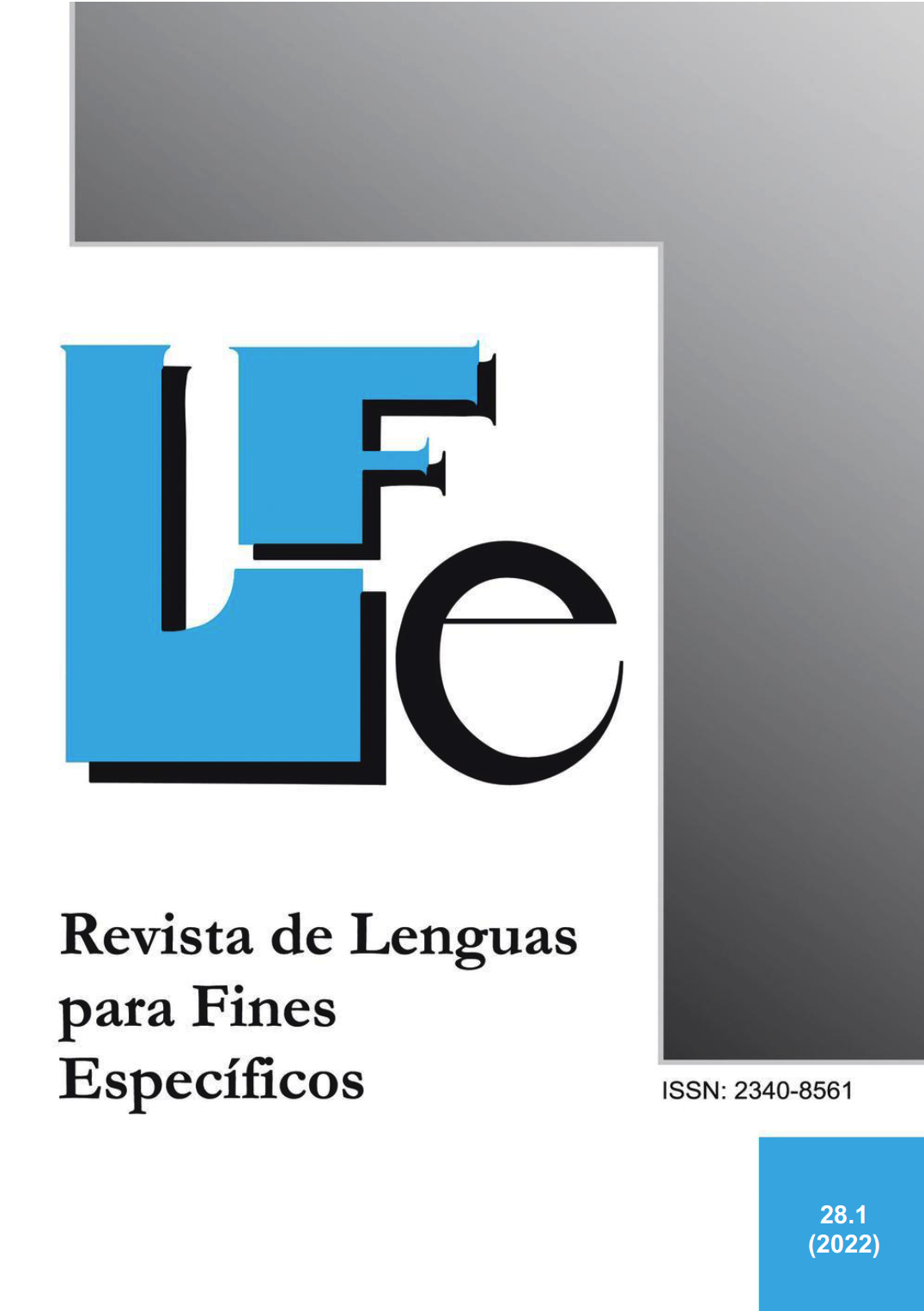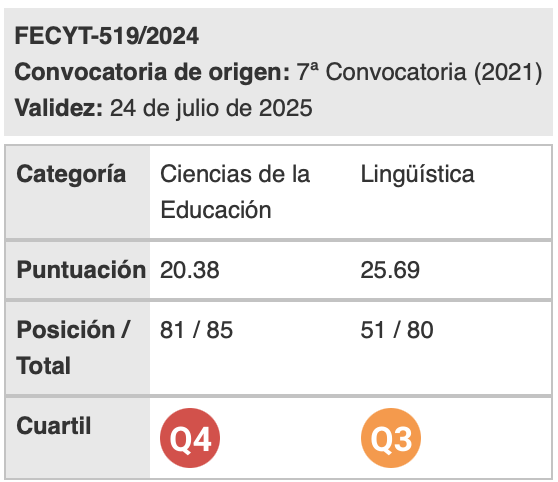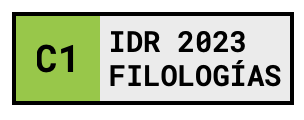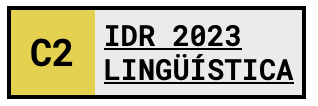Book Review: Bruce, Ian. 2020. Expressing Critical Thinking through Literary Texts.
Palabras clave:
Critical thinking, genre model, writing, text, discourse, EnglishResumen
The study of how critical thinking is expressed through written texts has been addressed by a diversity of scholars (such as Del Lungo Camiciotti & Tognini-Bonelli, 2004; Hunston & Thompson, 2000; Hyland & Diani, 2009; Salager-Meyer & Lewin, 2011). Drawing from prior studies, this book proposes a new theory for the manual analysis of the expression of critical thinking that identifies and categorises the genre-specific elements used by experienced writers to enact criticality. The book analyses how criticality is constructed in five different genres with the purpose of obtaining results that serve as a basis for providing pedagogical advice to the area of teaching writing and broadening the knowledge of the expression of critical thinking.
Descargas
Citas
Bruce, Ian. (2014a). Expressing Criticality in the Literature Review in Research Article Introductions in Applied Linguistics and Psychology. English for Specific Purposes, 36, 85-96.
Bruce, Ian. (2014b). Enacting Criticality in Corporate Disclosure Communication: The Genre of the Fund Manager Commentary. International Journal of Business Communication, 51(4), 315-336.
Bruce, Ian. (2016). Constructing Critical Stance in University Essays in English Literature and Sociology. English for Specific Purposes, 42, 13-25.
Bruce, Ian. (2018). The Textual Expression of Critical Thinking in PhD Discussions in Applied Linguistics. ESP Today, 6(1), 2-24.
Bruce, Ian. (2020). Expressing Critical Thinking through Disciplinary Texts: Insights from Five Genre Studies. Bloomsbury Academic.
Del Lungo Camiciotti, G. & Tognini-Bonelli, E. (Eds.). (2004). Academic Discourse: New Insights into Evaluations. Bern, Switzerland: Lang.
Hopkins, A. & Dudley-Evans, T. (1988). A Gerne-Based Investigation of the Discussion Sections in Articles and Dissertations. English for Specific Purposes, 7(2), 113-121.
Hunston, S. & Thompson, G. (2000). Evaluation in Text: Authorial Stance and the Construction of Discourse. Oxford, UK: Oxford University Press.
Hyland, K. & Diani, G. (2009). Academic Evaluation: Review Genres in University Settings. Basingstoke, UK: Palgrave Macmillan.
Lombardi, Loredana et al. (2021). Primary School Teachers’ Experiences of Teaching Strategies that Promote Pupils’ Critical Thinking. Taylor & Francis Online.
Salager-Meyer, F. & Lewin, B.A. (Eds.) (2011). Crossed Words: Criticism in Scholarly Writing. Bern, Switzerland: Lang.
Swales, J.M. (1981). Aspects of Article Introductions. Birmingham, UK: The University of Aston.
Swales, J.M. (1990). Genre Analysis: English in Academic and Research Settings. Cambridge, UK: Cambridge University Press.
Descargas
Publicado
Cómo citar
Número
Sección
Licencia
Aquellos autores/as que tengan publicaciones con esta revista, aceptan los términos siguientes:
- Los autores/as conservarán sus derechos de autor y garantizarán a la revista el derecho de primera publicación de su obra, el cuál estará simultáneamente sujeto a la Licencia de reconocimiento de Creative Commons que permite a terceros compartir la obra siempre que se indique su autor y su primera publicación esta revista.
- Los autores/as podrán adoptar otros acuerdos de licencia no exclusiva de distribución de la versión de la obra publicada (p. ej.: depositarla en un archivo telemático institucional o publicarla en un volumen monográfico) siempre que se indique la publicación inicial en esta revista.
- Se permite y recomienda a los autores/as difundir su obra a través de Internet (p. ej.: en archivos telemáticos institucionales o en su página web) antes y durante el proceso de envío, lo cual puede producir intercambios interesantes y aumentar las citas de la obra publicada. (Véase El efecto del acceso abierto).

Revista de Lenguas para fines específicos is licensed under a Creative Commons Reconocimiento-NoComercial-SinObraDerivada 4.0 Internacional License.

























